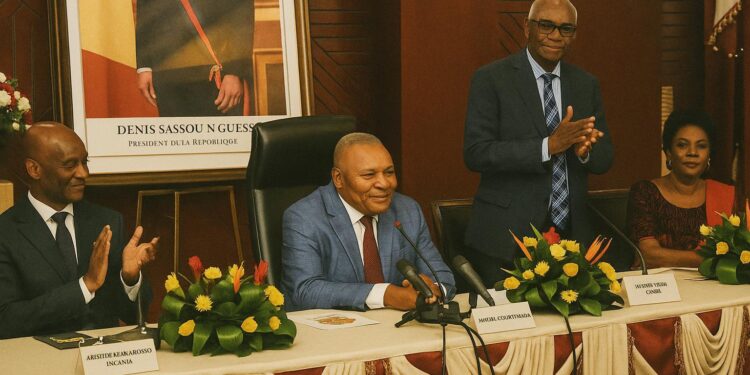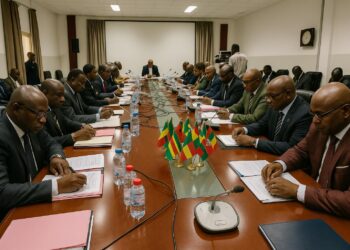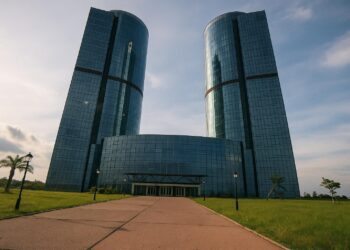A calculated early start for the 2026 presidential vote
The gathering of senior cadres in Brazzaville on 7 July, presided over by the Speaker of the National Assembly Isidore Mvouba, marks one of the earliest public signals that the Congolese presidential majority is already looking beyond the mid-term horizon. Officially, the meeting sought to “anticipate great events” and to align the ruling coalition well in advance of the March 2026 ballot. Similar early-bird caucuses were held ahead of the 2021 election and, according to observers from the Congolese Centre for Strategic Studies, they proved instrumental in shaping the political tempo (Jeune Afrique, 2021). The message this year is familiar yet sharpened: discipline must precede victory.
Why the Pool matters in Brazzaville’s electoral calculus
Geographically close to the capital yet historically restive, the Pool department carries a symbolic weight that surpasses its demographic share. Its post-conflict reconstruction after the 2016 insurgency has been a flagship file for President Denis Sassou Nguesso, supported by both the World Bank and the African Development Bank. Securing a convincing score in Pool would demonstrate that reconciliation policies have taken root. As one diplomat posted in Brazzaville underlines, “Pool remains the moral barometer of national cohesion; a smooth vote there speaks volumes to international partners.”
The choreography of party discipline
Speaker Mvouba’s rhetoric—”the first asset is the candidate himself; the second, you, the children of Pool”—highlights a dual-track campaign philosophy: personal leadership intertwined with territorial mobilisation. The introduction of Jean-Pierre Heyko Lékoba as political commissioner for Pool is consistent with the Congolese Party of Labour’s statutes, which assign commissioners a watchdog role over unity and ideological orthodoxy. Lékoba, already known for his tenure as prefect of Niari, stressed that he will propose rather than impose, accompanying rather than initiating. That nuance echoes the party’s post-2015 constitutional narrative, emphasising consensus within hierarchy.
Balancing coalition dynamics and local sensitivities
Marie-Jeanne Kouloumbou, head of the PCT Federation in Pool, acknowledged the arithmetic reality: the PCT alone cannot mathematically dominate the department. Her comment that “the PCT is always with other parties” hints at delicate negotiations with smaller allies such as the Club 2002 and the Union for the Republic. Since the 2017 legislative elections, these satellites have delivered critical seats in Mindouli and Kinkala, often in return for development pledges—including the long-awaited repair of the Brazzaville-Pointe-Noire railway line across Pool (Les Dépêches de Brazzaville, 2022). Ensuring that infrastructural promises progress on schedule will be central to keeping local elites on board.
Regional perceptions and the international lens
Foreign missions in Brazzaville read the July conclave as an attempt to project stability to creditors and partners ahead of Eurobond negotiations scheduled for early 2025 (Bloomberg, 2023). A predictable electoral landscape in Pool lessens the risk premium attached to Congolese sovereign debt and reassures multilateral lenders involved in post-conflict community programmes. Moreover, quiet campaigning allows the government to frame 2026 as a referendum on continuity rather than disruption, a narrative that aligns with sub-regional calls for institutional predictability voiced by the Economic Community of Central African States.
Prospects toward March 2026
With twenty months to go, the ruling coalition shows every intention of scripting events well in advance. Early designation of field commanders, emphasis on cohesion, and a calibrated acknowledgment of coalition partners create a disciplined architecture whose efficiency has been proven in previous cycles. Yet the electoral terrain remains textured: youth unemployment, fluctuating oil revenues and episodic security alerts in Pool will test the persuasive capacity of local cadres. The majority appears mindful of these challenges, betting that constant engagement, infrastructural delivery and the personal stature of President Sassou Nguesso will form a tripod sturdy enough to carry the vote.
Analysts in Brazzaville insist that premature certainties are ill-advised. Nevertheless, the July meeting provides a snapshot of strategic intent: to transform the sensitive Pool department from former flashpoint into showcase constituency. If the plan endures, March 2026 could stand less as a cliff-edge contest than as a managed confirmation of political continuity—an outcome that, for diplomatic interlocutors and investors alike, would translate into desirable predictability.












































